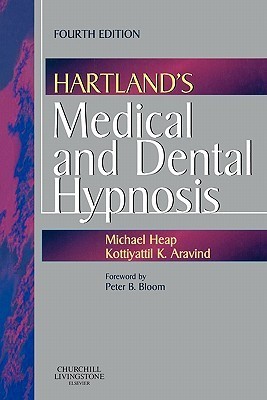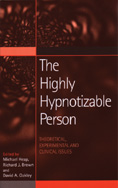3. Hypnosis in the Laboratory
Written on Sept 18, 2025
A reflection on the nature of hypnosis in the the context of the experimental research laboratory.
As I stated in my previous blog, over the course of my professional career and in my study of hypnosis, I have come to understand the importance of adopting a holistic perspective when accounting for the experience and behaviour of the subject. That is, we must consider the totality of the context in which hypnosis is taking place - for example. what the hypnotic subject expects and understands about hypnosis, and what they perceive as the purpose of their undergoing hypnosis - clinical, therapeutic, research, entertainment, and so on. This raises the question how much our conclusions about hypnosis in one context may generalise to another.
In this post, I am talking about hypnosis as studied in the laboratory for non-clinical purposes. Results of such experimentation were reported to a limited degree in the19th century and the first half of the 20th century, but it was not until well into the 20th century that academic psychologists begin publishing the findings of controlled laboratory-based experiments on hypnosis with non-clinical subjects. This research escalated in the second half of the 20th century and has continued.
Based on the results of this research, different theories were devised to account for the phenomena observed during hypnosis. These theories tended to fall into two camps. 'State theories' were more attuned to the traditional understanding of hypnosis, namely that the hypnotic induction placed the person in an altered state of consciousness or trance, one property of which was heightened suggestibility. 'Non state theories', mainly formulated by social and cognitive psychologists, considered it unnecessary to posit a trance state and relied on our understanding of existing psychological processes such as expectation, compliance, role-enactment, imagination, absorption, and 'strategic enactment' (the deployment of non-hypnotic cognitive and behavioural strategies to achieve the desired effects).
I think it fair to say that non-state theories eventually gained the upper hand in their explanatory utility. In particular, the belief that hypnosis is an altered state of consciousness induced by the hypnotist has not stood the test. However, the more radical non-state theories - those that hypothesised that hypnosis and suggestibility could be explained by a single psychological process - are not so influential now.
In the present century, academic psychologists have mostly focused their investigations of hypnosis on suggestion and suggestibility without making any reference to the hypnotic state or trance. Key interests are why subjects experience their response to suggestion as so realistic and automatic, and what accounts for individual differences in suggestibility, which has been shown to be stable over time for any single person. Modern scanning methods are now in wide use to investigate which parts of the brain become more active and less active during hypnosis, and what are the differences in this respect between subjects of varying suggestibility, either during hypnosis or when performing cognitive tasks in the absence hypnosis. As a result of this, theories of hypnosis have become much more grounded in neuroscience and consequently rather more technical.
Despite what I stated above, the idea that hypnosis involves a special state of consciousness has not gone away, and it remains popular amongst medics, dentists, and psychotherapists who use hypnosis in their work. I will return to this in a later blog.
I end the present blog by returning to the question whether we can generalise what has been discovered about hypnosis in the laboratory with non-clinical subjects to other contexts in which hypnosis is being used. In the next post I shall examine the use of hypnosis as a form of entertainment. Meanwhile, let's give more thought to our question.
Note: At present, it's not possible for you to post your comments on my blog directly. But I welcome them via my email address, and I'll only upload them under 'Comments' if that is your wish (and with the usual stipulations about offensiveness, etc.)




